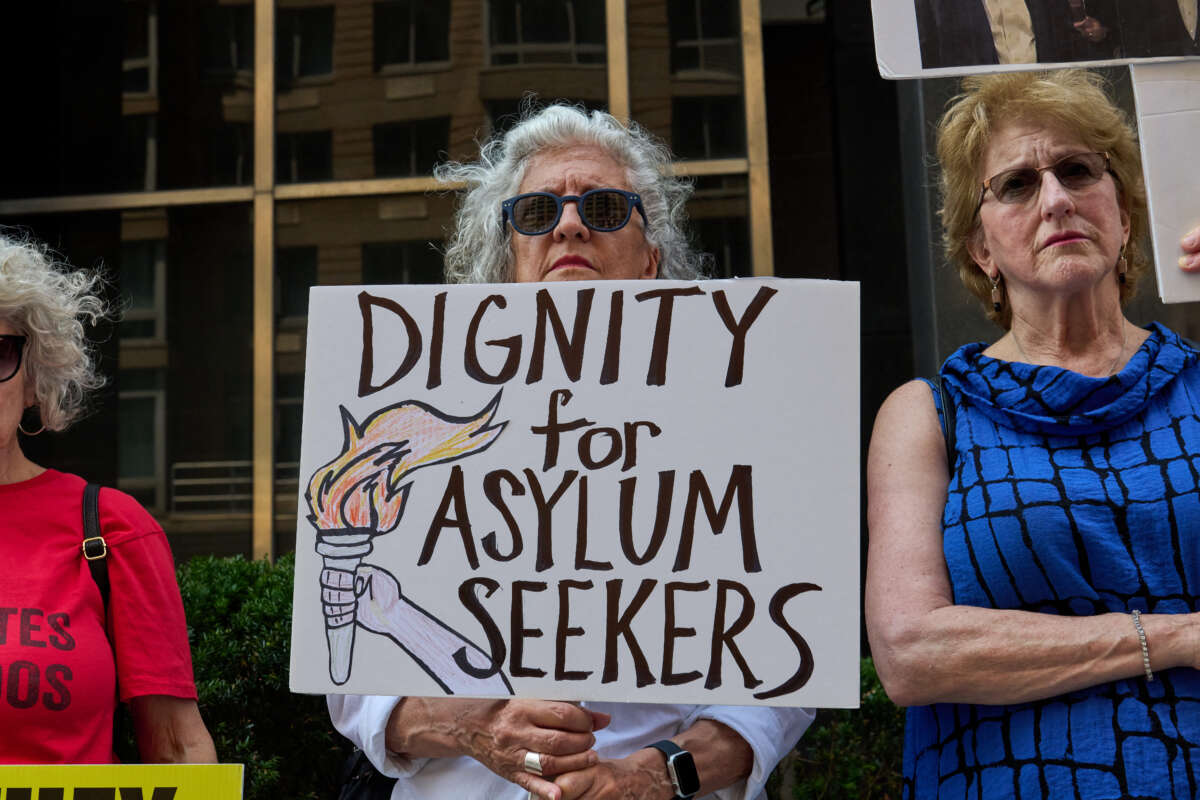UPDATE: A federal judge has just paused the implementation of annual fees imposed on asylum seekers, a ruling that provides immediate relief amid rising anxiety for those navigating the U.S. immigration system. The decision responds to a lawsuit filed by the Asylum Seeker Advocacy Project (ASAP), challenging the recently enacted One Big Beautiful Bill.
This controversial legislation, which took effect on July 4, 2025, mandates that asylum seekers pay a $100 filing fee and an annual fee of $100 for each year their application is pending. Notably, the law prohibits applicants from obtaining fee waivers, making the U.S. one of the few countries globally to impose such financial burdens on those seeking asylum.
“The annual asylum fee imposes economic hardship on asylum seekers, many of whom have limited means,” ASAP’s complaint states. The group emphasizes that the retroactive application of this law could require applicants to pay these fees on short notice, exacerbating their financial strain.
Failure to pay these fees could result in application denials, loss of work authorization, and the grave risk of deportation, potentially returning individuals to the very countries they fled to escape persecution.
In a statement, Alba, an asylum seeker from Honduras and ASAP member, expressed relief at the judge’s decision: “I have been so worried and confused about how or when to pay the annual asylum fee. With yesterday’s decision, I can breathe a little easier.”
The judge indicated a willingness to reconsider lifting the stay once uniform policies are established, ensuring asylum applicants receive adequate notice of deadlines, payment mechanisms, and the penalties for nonpayment.
In addition to the fees for asylum seekers, the One Big Beautiful Bill also increases application fees for other vulnerable groups, such as children applying for Special Immigrant Juvenile Status, who now face a $250 application fee, although they can still apply for waivers.
While these new fees pose significant challenges, the U.S. Citizenship and Immigration Services (USCIS) has complicated the payment process further by announcing that it will only accept electronic payments for paper-filed forms. This move aims to modernize financial transactions but could create additional barriers for those already facing financial hardships.
Matthew Tragesser, a spokesman for USCIS, stated, “Over 90% of our payments come from checks and money orders, causing processing delays and increasing the risk of fraud and lost payments. This is a no-brainer move.” However, critics argue that such changes disproportionately affect those with limited access to technology.
As this situation develops, asylum seekers and their advocates continue to watch closely. The implications of this ruling could set a critical precedent for how the U.S. handles immigration fees moving forward.
Stay informed as we bring you the latest updates on this urgent matter affecting thousands seeking refuge in the U.S.







